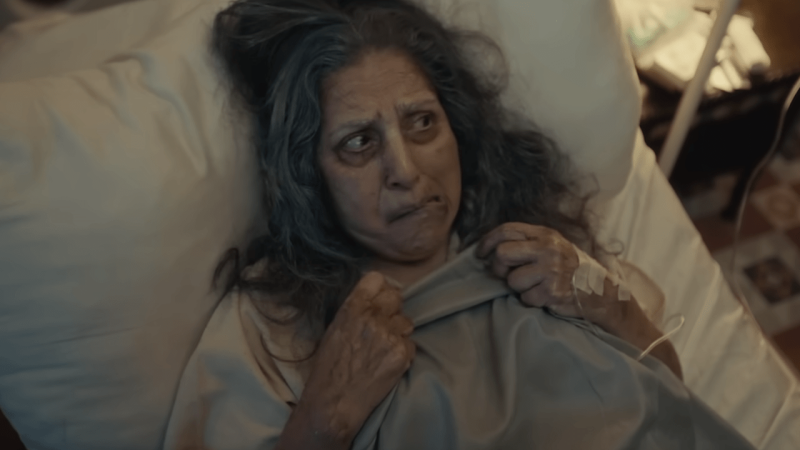Can't decide what to watch? Here are our top 5 Pakistani picks on Netflix
What's the one thing we all look forward to on Eidul Fitr after the food? Well, Eidi. And after that, some downtime before the work week starts again.
And this year, with everyone hopefully observing SOPs and not going to gatherings, there should be time to indulge in those long-deserved naps and screen time.
If you're looking for an engrossing show to start binge-watching or a thoughtful movie to keep you occupied for a few hours as you lounge on your sofa or bed, here are our top five Pakistani picks from Netflix's offerings:
Humsafar: how have you not seen it yet?
We're getting the most obvious one out of the way first: Humsafar. Chances are you've seen the entire Fawad Khan and Mahira Khan starrer TV series or have caught a glimpse of the series or its OST — or at the very least, are aware that it exists.
So what made this TV serial stand out, despite the clichéd conflicts (rich versus poor and saas versus bahu) that sit at the heart of the plot? To begin with, every character who matters in the plot conforms to the Pakistani definition of physical beauty. Director Sarmad Khoosat was onto something when he made sure everyone — the heroine, the husband, the vamp, the saas, the child and the khala — were fair-skinned, and where possible, endowed with light coloured eyes.
So if you're willing to spend a few hours watching unashamedly beautiful people residing in immodestly beautiful surroundings as the plot thickens like an unchecked gravy, click on Humsafar.
Read more here.
Cake: a bittersweet family drama
At its most basic level, Cake is a family drama; its focus is not a pair of lovers or a 'social issue' of national importance. Instead, Cake draws us into a household held together by Zareen (played by Aamina Sheikh), who nurses her eccentric, ailing parents (played by Mohammed Ahmed as the father and Beo Rana Zafar as the mother) while her siblings Zara (played by Sanam Saeed) and Zain (played by Faris Khalid) pursue their lives abroad.
It's a pleasure to watch a Pakistani film celebrating the sisterhood of women, those secret moments and close conversations we thrive on every day yet don't see in popular TV or cinema.
Read more here.
Rangreza: a musical love showdown
Rangreza is a love story between a pop rock star Ali Zain (Bilal Ashraf) and a young woman from a qawwal family Reshmi (Urwa Hocane). Reshmi is betrothed to Waseem (Gohar Rasheed) who is more territorial about Reshmi than in love. The story progresses with a clash of backgrounds, a love triangle and a message on the importance of family support.
Aamir Mohiuddin's directorial debut definitely set the bar high for films to follow in terms of background score. The music was really engaging and helped make many (not all) dragging scenes tolerable.
Read more here.
Abdullah — the Final Witness: a strong piece of storytelling
Based on the Kharotabad incident of 2011 which resulted in the death of five foreigners and alleged suicide bombers, including three women, Abdullah — the Final Witness tackles the tragedy in its own unique way and presents a fictional solution that may seem acceptable to many.
The film revolves around Abdullah (Hameed Sheikh), the driver of the truck that was transporting the five foreigners to Quetta. There is an interrogation scene in the beginning that reminds you of countless foreign films but it has a local flavour as Abdullah is introduced to the interrogating officer (Sajid Hasan) to plead his innocence. He then recalls the ordeal in flashback sequences, the complete version of which isn’t revealed till the climax that comes 90 minutes later.
The cinematography is the highlight of Abdullah while the background score often complements the mood. The script by Hashim Nadeem is gripping and well-written. Abdullah may not have all the commercial elements but it’s a wonderful piece of storytelling where the ending comes as a surprise.
Read more here.
Zindagi Gulzar Hai: a more real portrayal of marriage
Netflix doesn't have many options for Pakistani serials but that's not why we're choosing Zindagi Gulzar Hai. Yes, the show sanctified a middle class dupatta-clad girl while villainising the upper class girls in western attire. The good girl/bad girl dichotomy, however, failed to erase the complexities that animate out of this binary.
With a Jane Eyre-esque earnestness, the good girl pursues a career, lives apart from her husband, and carves a space, where her being is not policed by men. Viewers see the very real struggle of a middle-class girl coming to terms with marriage to a man she doesn't seem to completely like in the beginning.
The show enthralled audiences in India and on-screen couple Kashaf (Sanam Saeed) and Zaroun (Fawwad Khan) became the subjects of adoration and amazement.
Read more here.










Comments